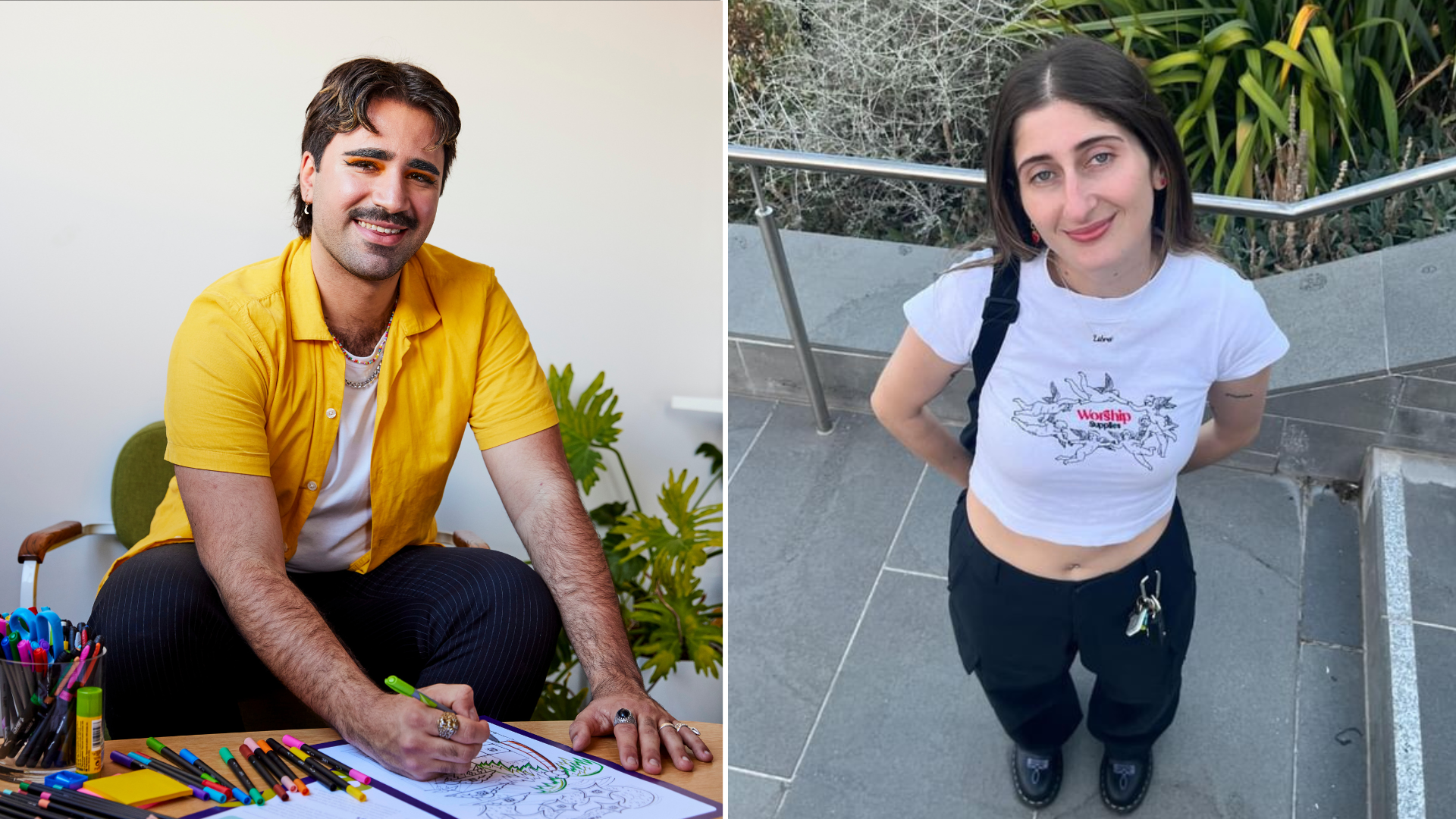As the world celebrates Pride Month, the Greek Australian community finds itself reflecting on its own journey.
John Tzimas, an administrator of the Greek kai Gay Facebook page, paints a vivid picture of the challenges in the early days.
“In the past there were many. Members felt excluded from the Greek community, experienced difficulties coming out to their families, and felt ostracised by everyone around them,” he says.
“Relationships were difficult when our partners struggled with us not coming out to family and friends. Many of us were forced to live a double life. Fortunately, in 2024 that is not the case for many of us. Negativity still exists, but it is noticeable more on the fringes of the Greek community and in the church.”
A long way from home: John’s story
John, a member of the Greek and Gay Support Network (GGSN), paints a vivid picture of the early days. Formed in 1995, the GGSN’s two groups, the Greek and Gay Group (GGG) for men and the Greek Australian Lesbian (GAλS), were lifelines for those struggling with isolation.
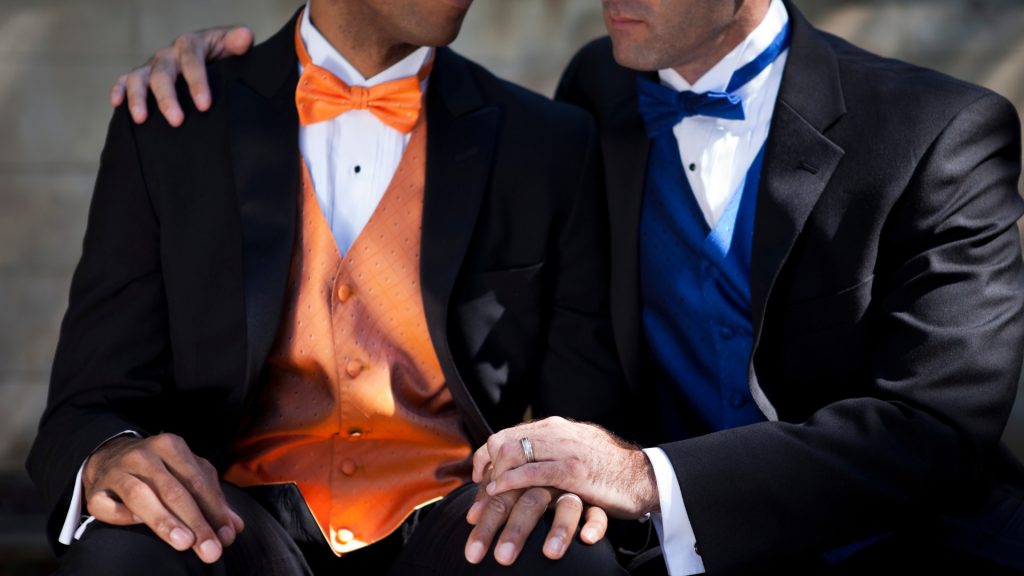
“We were constituted relatively informally and met regularly to discuss issues that were relevant to us at the time, including coming out, families, friends, work, sexual health, religion, etc,” John, who joined the group in 1998, says.
“I discovered my sexuality later in life after being married with two children. Ever since then I have been coming out, and it never seems to end.
“I am very fortunate to have an amazing relationship with my children, my sister, and my mother (father has passed). It wasn’t always easy, particularly in the early years. Fortunately, I had the support of the group, my sister and my friends to guide me through the difficult times. My sexuality is no longer an issue for those around me.”
Now a pappou, John sees how far the LGBTQIA+ community has come from the days when the GGSN was created to help its Greek Australian members support each other given there were no other support mechanisms within the Greek community at the time.
Over the last 29 years, the GGSN has fostered lifelong friendships and achieved significant milestones.
“Thousands of Greek Australians have been supported in some way through our work,” John says. “Our annual dance parties allowed us to enjoy our heritage with Greek music and food in a safe space.”
John also remembers the pivotal moment of the ‘yes’ campaign for marriage equality.
“The celebration of Marriage Equality at the Melbourne Pride March of that year with the banner ‘Και στα δικά μας’ (a wedding salute) remains a powerful memory,” he reflects.
Currently in Greece, John says that life there is not “The Mykonos Experience.”

“It is great to see legal recognition rights slowly developing similar to those we have in Australia,” he says, adding that homophobia outside the major centres of Athens and Thessaloniki and party islands like Mykonos is more prevalent than in Australia.
“The election of the opposition leader (leftist gay leader Stefanos Kasselakis) was a very interesting experience,” John says.
Finding acceptance: Nicky’s positive journey
Nicky Tsekouras, an artist and lawyer, says he remembers his uncle struggling with his own sexuality and paving the way for acceptance and inclusion in his own migrant family.
“My uncle is also gay,” Nicky reveals, “and everyone knew this in my family, but this was not necessarily spoken about.”
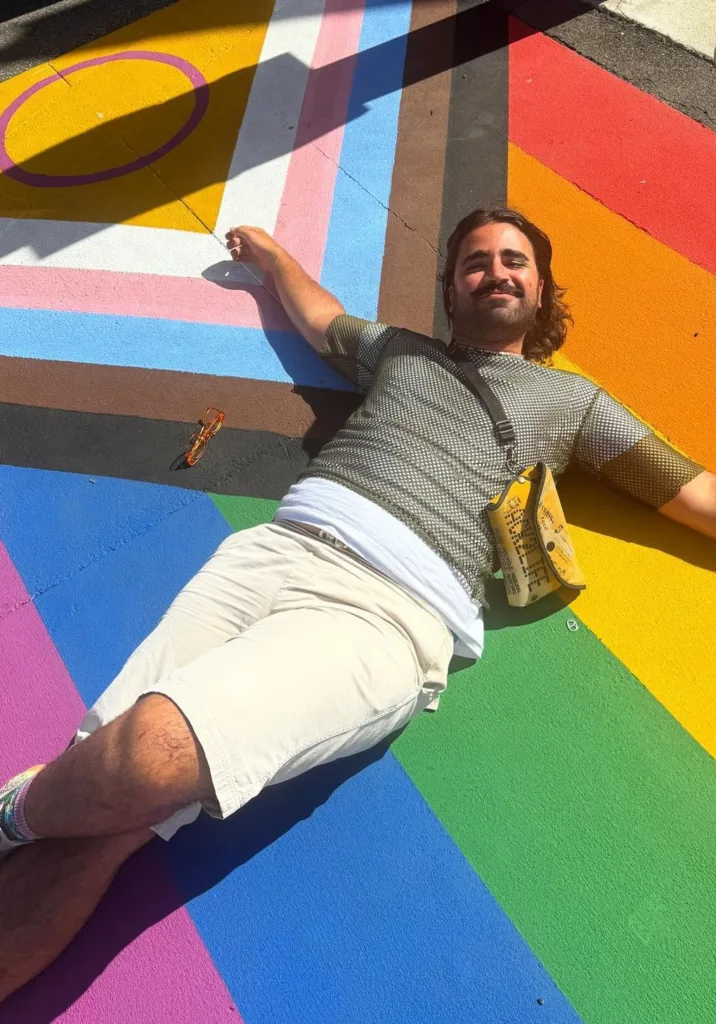
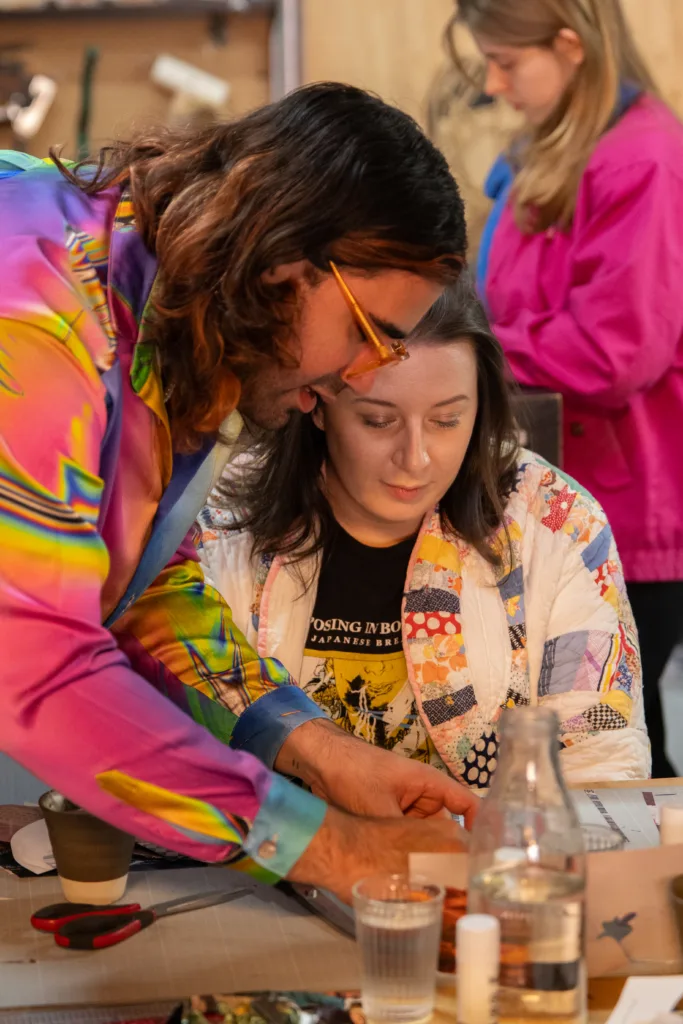
He remembers the fear and confusion, especially witnessing his uncle’s struggles.
“The first person I confided in about my own sexual identity was my uncle. I sent him a text, and then we went for a coffee. He gave me plenty of advice,” Nicky says, “though I don’t remember much of it.”
Nicky was pleasantly surprised by his family’s own acceptance of him. Not just his siblings, but his yiayia’s attitude was also positive.
“My yiayia was always confident with what I am and who I am and what I do,” Nicky says, adding that his family met him with love and acceptance.
“Apart from my family, I don’t think I ever told anyone else specifically. It all happened organically. I had my first partner at 19 years.”
Nicky credits the artistic community with providing a safe space for him to express his identity.
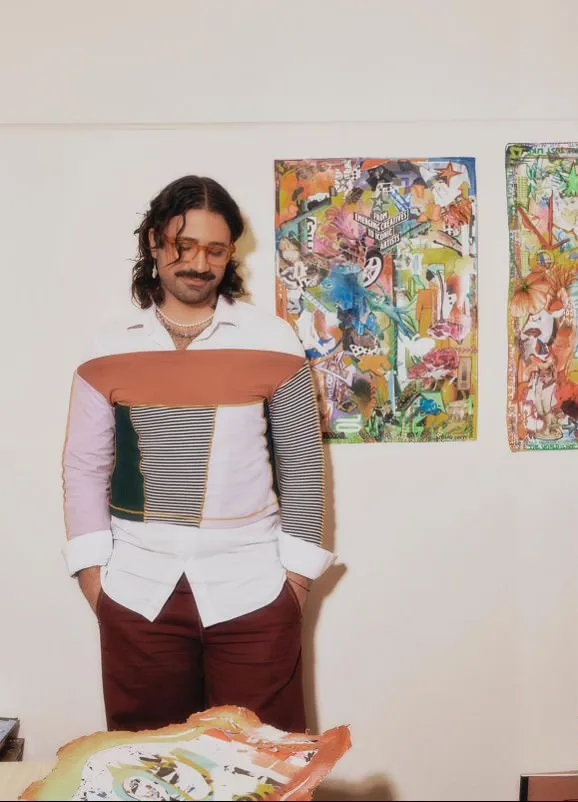
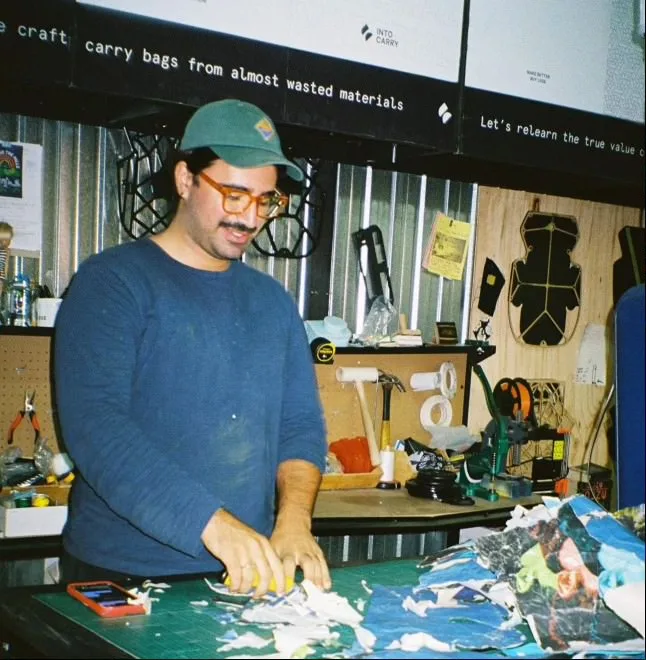
“The visual arts community is very accepting,” he shares, admitting that things may not have been so easy had he pursued a career in law.
He also adds that Greeks are more accepting of men who are gay these days than they are of women. One woman The Greek Herald spoke with wished to remain anonymous, saying that she is still experiencing family conflict that she does not want to re-ignite for the sake of her child. On a positive note however, she found that her child did have acceptance at Greek school.
Breaking Barriers: Kat’s voice
Greek Australian content creator Kat Zam, who grew up in a small town near Mildura, faced a different challenge.
“There was no representation, and I didn’t even know any Greek gay people growing up,” she says, adding that she did not realise she was a lesbian until she turned 19 years.
Coming out to her family was initially difficult, with anxieties about their reaction.
“My mother is relatively progressive, and we didn’t just stick with Greeks and had friends from all backgrounds growing up,” Kat recalls.
“Mum wasn’t worried about me being gay, but about what yiayia and pappou would say. Another relative told me that my mother was open-minded but worried about how others would treat me. Older generation Greeks can be a bit close-minded and conservative. And she grew up at a time when gay people were bashed and things like that.”
Kat initially found support in the Greek kai Gay Facebook page, but, more recently, finding her voice online has been empowering. Known for her content creation of Greek Diaspora Stories, she began to wonder why her Greek and gay identities needed to be kept separate.
“I was focusing on Greek content but, last year, made a video about being queer,” she says.
The response was overwhelmingly positive, despite “some nasty comments.” From the messages, she understood there was a real community for Greek gay people and she began to organise social events for LGBTQIA+ communities.
Her social media presence has become a beacon for others. Kat’s optimism is infectious.
“There’s a lot of young Greek Australians who are a lot more open-minded,” she beams. “The younger generation is changing, and it’s changing for the better.”
The fight continues: Kyriakos’ perspective
Kyriakos Gold, who identifies as pansexual, highlights the ongoing struggle for acceptance within the broader Greek community.
“The Church,” he states, “is a big barrier for a lot of Greek Australians, particularly those who are more culturally or religiously connected.”
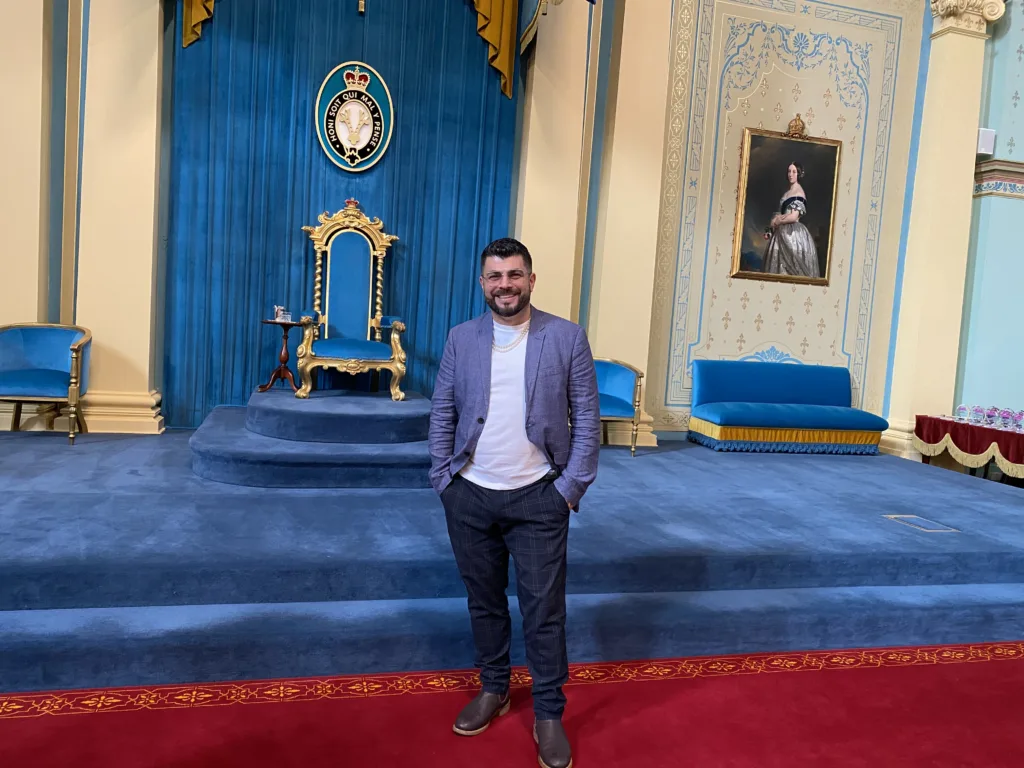
He points to Melbourne priest Papa Lefteris who demanded parishioners vote ‘no’ in the same-sex marriage survey and allegedly saying gay people should get shot.
“And yet thousands of Greeks, especially young Greeks, continue to show up for him and support him,” Kyriakos says, and he also adds that the community’s identity is linked to the church and, as a result, this can be exclusionary.
“It’s important for the Greek Orthodox Church to come to the party and actually acknowledge the LGBTQIA+ community.”
Kyriakos adds that he has not always felt safe in the Greek Australian community.
“I have presented at Greek events and felt safer on the stage than off,” he says.
“I faced homophobia. Not open homophobia. When you are successful in what you are achieving you are not an easy target, but there will be subtle homophobia. For instance, you may lose an opportunity and you may not be able to pinpoint why. Little comments, looks, conversations and jokes. Gay people between us have reclaimed words and can make jokes.”
Having a celebrated career and large social media following has helped Kyriakos. Currently in the social impact space, Kyriakos feels that “sexism and homophobia are linked.”
“In men, toxic masculinity drives it. In women, it is religious conservatism. If we don’t achieve equality between the two genders, forget the gays,” he says.
Now aged 48, Kyriakos is established in his career.
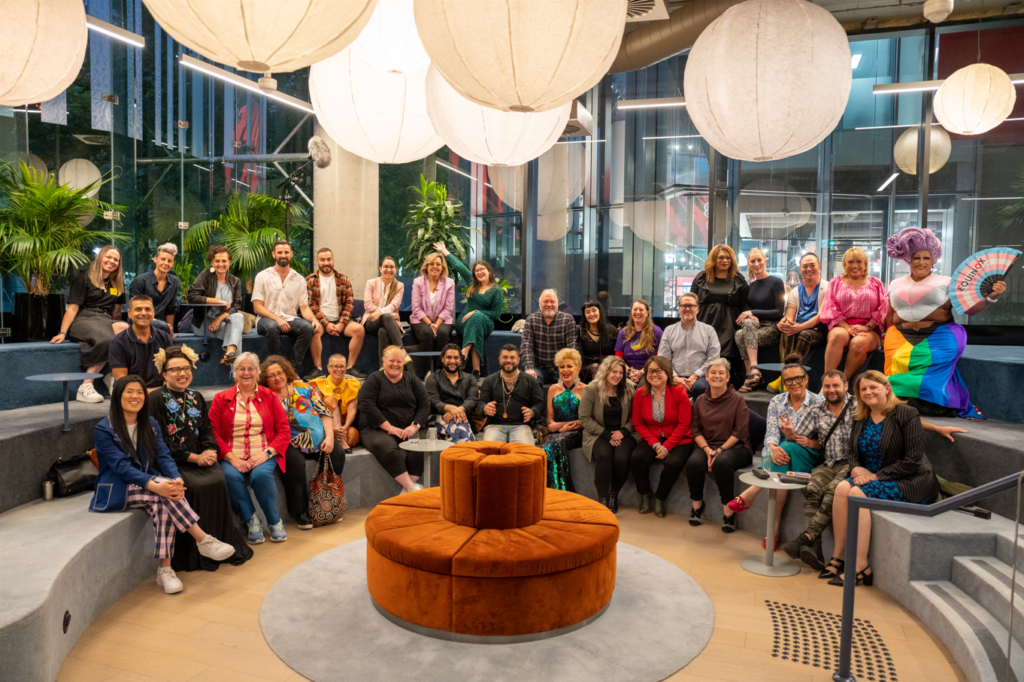
“It is different when you are younger and you don’t have the words,” he says, also pointing to the internet today as a tool to help people get information.
A watershed moment in Australia came during the plebiscite for the gay community.
“We got to know who our allies and enemies were,” he said. “There was a disconnect between multicultural communities and the broader sector.”
Looking forward: A brighter future
Despite the remaining challenges, the Greek Australian LGBTQ+ community is moving forward with pride. Connections are being fostered, and there is a vibrant community with a lot more visibility.
Kyriakos remains hopeful. “There is a growing acceptance within the Greek Australian community,” he acknowledges.
He concludes with a powerful message: “We are Greek. We are LGBTQIA+. And we belong.”
